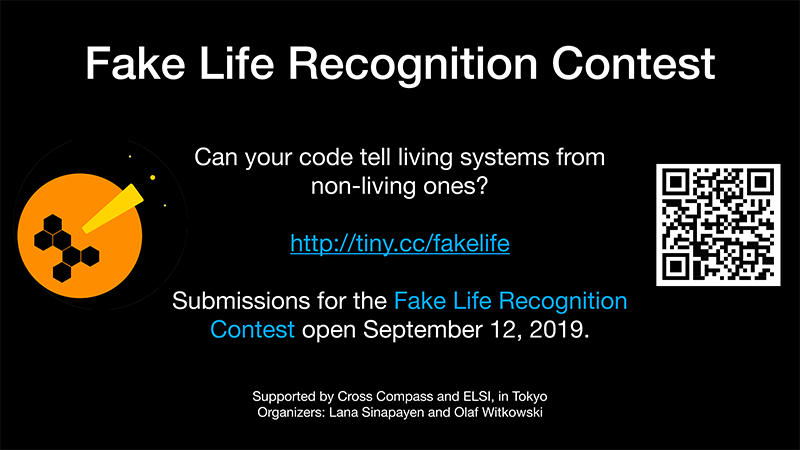「偽生命」認識コンテスト

位置データから物体が「生命」か「生命ではない」を判断する「偽生命」認識コンテストが開催されています。当コンテストには研究員のラナ・シナパヤ(Sony CSL / ELSI)が共催しています。
【Fake Life Recognition Contest】
https://competitions.codalab.org/competitions/20612

位置データから物体が「生命」か「生命ではない」を判断する「偽生命」認識コンテストが開催されています。当コンテストには研究員のラナ・シナパヤ(Sony CSL / ELSI)が共催しています。
【Fake Life Recognition Contest】
https://competitions.codalab.org/competitions/20612